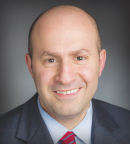Belzutifan is a first-in-class, oral hypoxia-inducible factor (HIF)-2α inhibitor, and active HIF-2α is a key oncogenic driver in clear cell renal cancer. The manufacturer has filed a new drug application for the treatment of adults with RCC who experienced disease progression after PD-1/PD-L1– and VEGFR-targeted therapies. The drug is already approved for the treatment of patients with von Hippel–Lindau disease who require therapy for associated RCC or other malignancies.
Belzutifan achieved a superior progression-free survival and overall response rate in patients with heavily pretreated advanced clear cell renal cell carcinoma (RCC) vs everolimus in the phase III LITESPARK-005 trial. Another positive signal for belzutifan in combination with cabozantinib was observed in the phase II LITESPARK-003 trial for treatment-naive patients with RCC and those who had previously received an immune checkpoint inhibitor. Both studies were presented at the European Society for Medical Oncology (ESMO) Congress 2023.1,2
LITESPARK-005: Previously Treated Patients
In the phase III LITESPARK-005 trial, treatment with belzutifan led to improved progression-free survival and objective response rate compared with everolimus in patients with pretreated advanced clear cell RCC in both an interim analysis and an updated analysis.1 At the first prespecified interim analysis, at a median follow-up of 18.4 months, belzutifan significantly reduced the risk of disease progression or death vs everolimus in pretreated patients with advanced RCC by 25% (P < .001). At the second prespecified interim analysis, with a median follow-up of 25.7 months, results remained consistent with the first interim analysis, showing a 26% reduction in the risk of disease progression or death vs everolimus.

Belzutifan demonstrated a significant improvement in progression-free survival over everolimus.— Laurence Albiges, MD, PhD
Tweet this quote
“Belzutifan demonstrated a significant improvement in progression-free survival over everolimus,” said study author Laurence Albiges, MD, PhD, a medical oncologist and Head of the Department of Oncology at Paris–Saclay University, Villejuif, France. According to Dr. Albiges, LITESPARK-005 is the first positive phase III trial in patients with advanced RCC for whom treatment with immune checkpoint inhibitors and vascular endothelial growth factor (VEGF) tyrosine kinase inhibitors had failed.
“There are limited treatment options for patients with advanced RCC whose cancer progresses after both immune checkpoint and antiangiogenic therapies,” she noted. “Therefore, it is an important step forward … for these patients who urgently need additional treatment options after their disease progresses,” Dr. Albiges stated in a press release.
Belzutifan is a first-in-class, oral hypoxia-inducible factor (HIF)-2α inhibitor, and active HIF-2α is a key oncogenic driver in clear cell renal cancer. The manufacturer has filed a new drug application for the treatment of adults with RCC who experienced disease progression after PD-1/PD-L1– and VEGFR-targeted therapies. The drug is already approved for the treatment of patients with von Hippel–Lindau disease who require therapy for associated RCC or other malignancies.
LITESPARK-005 Details
LITESPARK-005 enrolled 746 adults with clear cell RCC and Karnofsky performance scale scores of at least 70% who were treated with one to three prior regimens, including a checkpoint inhibitor and a VEGF tyrosine kinase inhibitor. Participants were randomly assigned 1:1 to receive belzutifan (120 mg/d; n = 374) or everolimus (10 mg/d; n = 372) until disease progression or unacceptable toxicity.
The co–primary endpoints were progression-free survival and overall survival. Secondary endpoints were overall response rate, safety, and time to deterioration. At a median follow-up of 18.4 months, treatment with belzutifan achieved superior progression-free survival and overall response rate compared with everolimus. The 12-month progression-free survival rates were 33.7% in the belzutifan arm vs 17.6% in the everolimus arm, and the 18-month progression-free survival rates were 22.5% and 9.0%, respectively.
Overall response rate was 21.9% for the belzutifan arm vs 3.5% in the everolimus arm. Complete response rate was 2.7% vs 0%, respectively. By the time of the second interim analysis (at 25.7 months), overall response rates improved with belzutifan over everolimus (22.7% vs 3.5%).
There was no statistically significant difference between the two arms in overall survival, although a modest trend toward improvement was observed with belzutifan. However, this difference was not statistically significant.
“With regard to the subgroup analysis, all subgroups favored belzutifan,” Dr. Albiges explained. “[I’d like to] stress the fact that belzutifan demonstrated activity in both intermediate- and poor-risk International Metastatic RCC Database Consortium [IMDC] categories.”
The safety profile of belzutifan was consistent with previous reports, and no new safety concerns emerged. The rates of treatment-related adverse events were similar in both arms: 89% with belzutifan and 89.4% with everolimus. Grade 3 to 5 adverse events were reported in a similar percentage of patients in both arms: 38.7% in the belzutifan arm vs 39.4% in the everolimus arm.
LITESPARK-003: Treatment-Naive RCC
Durable responses were seen with belzutifan in combination with cabozantinib regardless of IMDC risk category in patients with treatment-naive clear cell RCC or those who had received prior immunotherapy, according to findings from the phase II LITESPARK-003 trial, also presented at the ESMO Congress 2023.2
“Belzutifan plus cabozantinib continue to show durable antitumor activity in patients with clear cell RCC who are treatment-naive or previously treated,” said lead author Toni K. Choueiri, MD, FASCO, of Harvard Medical School and Director of the Lank Center for Genitourinary Oncology at the Dana-Farber Cancer Institute, Boston.

Toni K. Choueiri, MD, FASCO
Initial results from LITESPARK-003 showed promising antitumor activity in patients who were either treatment-naive (cohort 1) or previously treated with immunotherapy (cohort 2). At a median follow-up of 14.0 months, a 57% overall response rate was seen in cohort 1. At a median follow-up of 24.6 months, a 31% overall response rate was seen in cohort 2. Dr. Choueiri presented updated findings from both cohorts at the ESMO Congress 2023.
LITESPARK-003 Details
The primary endpoint of LITESPARK-003 was overall response rate; secondary endpoints included duration of response, progression-free survival, overall survival, and safety. In cohort 1, 50 patients were enrolled and treated, with a median follow-up of 24.3 months. Of these patients, 24 discontinued treatment. Cohort 2 enrolled and treated 52 patients, with a median follow-up of 39.8 months. Of these patients, 46 discontinued treatment.
In cohort 1, 28 patients (56%) were classified as IMDC favorable risk, and 22 patients (44%) were IMDC intermediate/poor risk. In cohort 2, 11 patients (21%) were IMDC favorable risk, and 41 patients (79%) were IMDC intermediate/poor risk.
The overall response rate was 70% in cohort 1: 79% in patients who were IMDC favorable risk and 59% in patients who were IMDC intermediate/poor risk. In cohort 2, overall response rate was 31% in the entire cohort: 27% in patients who were IMDC favorable risk and 32% in patients who were IMDC intermediate/poor risk.
All patients in cohort 1 had a reduction in target lesion size, and in cohort 2, 45 of 51 patients (88%) with available postbaseline imaging showed a reduction in target lesion size. In cohort 1, median progression-free survival was 30.3 months, and in cohort 2, it was 3.8 months. In cohort 1, median overall survival was not reached, and in cohort 2, it was 26.7 months.
Any-grade treatment-related adverse events were reported in 100% of cohort 1 and 98% of cohort 2. Grade 3 or higher treatment-related adverse events were reported in 23 patients (46%) in cohort 1 and 33 patients (64%) in cohort 2. There were no grade 5 treatment-related adverse events in cohort 1, and one patient experienced a grade 5 treatment-related adverse event in cohort 2. Drug discontinuations as a result of a treatment-related adverse event were reported in 7 patients (14%) in cohort 1 and 11 patients (21%) in cohort 2. Serious treatment-related adverse events were observed in 7 patients (14%) in cohort 1 and 16 patients (31%) in cohort 2. Dose reductions as a result of a treatment-related adverse event were reported in 38 patients (76%) in cohort 1 and 37 patients (71%) in cohort 2.
DISCLOSURE: Dr. Albiges has served as a consultant for Astellas, BMS, Eisai, Ipsen, Janssen, MSD, Novartis, Pfizer, and Roche. Dr. Choueiri owns stock in or has received honoraria from Curesponse, Osel, Pionyr, Precede Bio, and Tempest Therapeutics; has served as a consultant or advisor to Alkermes, Analysis Group, Aravive, Arcus Biosciences, ASCO, AstraZeneca, Bayer, Bristol Myers Squibb, Clinical Care Options, Eisai, EMD Serono, ESMO, Exelixis, Foundation Medicine, Gilead Sciences, GlaxoSmithKline, Harborside Press, Infinity Pharmaceuticals, Ipsen, Janssen Oncology, Kanaph Therapeutics, The Lancet Oncology, Lilly, Merck, MJH Life Sciences, Navinata Health, NCCN, NiKang Therapeutics, Novartis, Peloton Therapeutics, Pfizer, PlatformQ Health, Precede Bio, Prometheus, Roche/Genentech, Sanofi/Aventis, Scholar Rock, Tempest Therapeutics, The New England Journal of Medicine, and UpToDate; has received research funding from Agensys, Arcus Biosciences, AstraZeneca, AVEO, Bayer, Bristol Myers Squibb, Calithera Biosciences, Eisai, Exelixis, GlaxoSmithKline, Ipsen, Merck, NiKang Therapeutics, Novartis, Peloton Therapeutics, Pfizer, Roche, Roche/Genentech, Seattle Genetics/Astellas, Takeda, and TRACON Pharma; holds patents and royalties from Biomarkers of Clinical Response and Benefit to Immune Checkpoint Inhibitor Therapy, ctDNA technologies, and PBRM1 Biomarkers Predictive of Anti-Immune Checkpoint Response; and has received travel expenses from Alexion Pharmaceuticals, Allegiant, Analysis Group, AstraZeneca, Bayer, Bristol Myers Squibb, Cerulean Pharma, Clinical Care Options, Corvus Pharmaceuticals, Eisai, EMD Serono, ESMO, Exelixis, Foundation Medicine, GlaxoSmithKline, Harborside Press, Heron, Ipsen, Kidney Cancer Association, The Lancet Oncology, Lilly, Lpath, Merck, MJH Life Sciences, Navinata Health, NCCN, Novartis, Peloton Therapeutics, Pfizer, PlatformQ Health, Prometheus, Roche/Genentech, Sanofi/Aventis, The New England Journal of Medicine, and UpToDate.
REFERENCES
1. Albiges L, Rini BI, Peltola K, et al: Belzutifan versus everolimus in participants with previously treated advanced clear cell renal cell carcinoma: Randomized open-label phase III LITESPARK-005 study. ESMO Congress 2023. Abstract LBA88. Presented October 22, 2023.
2. Choueiri TK, Bauer T, Merchan JR, et al: Phase II LITESPARK-003 study of belzutifan in combination with cabozantinib for advanced clear cell renal cell carcinoma. ESMO Congress 2023. Abstract LBA87. Presented October 22, 2023.

